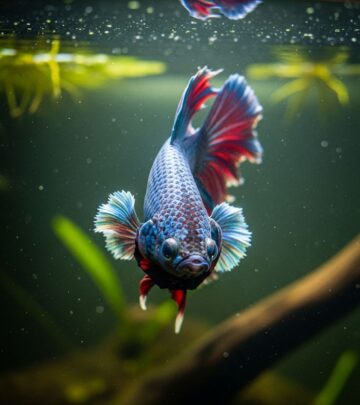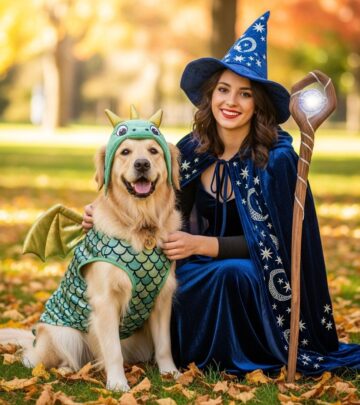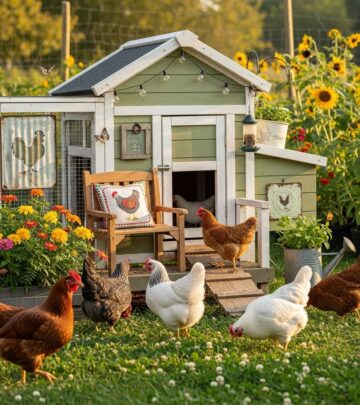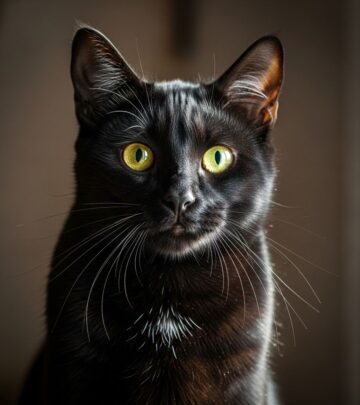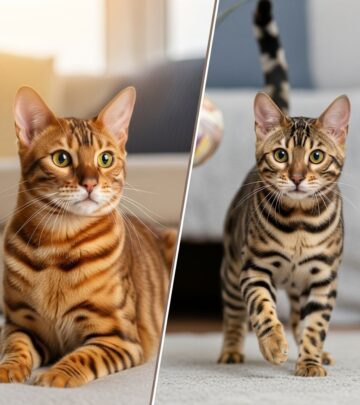Comprehensive Guide to AKC ‘C’ Dog Breeds: Characteristics and Care
See how C breeds suit different homes, temperaments, and care routines.
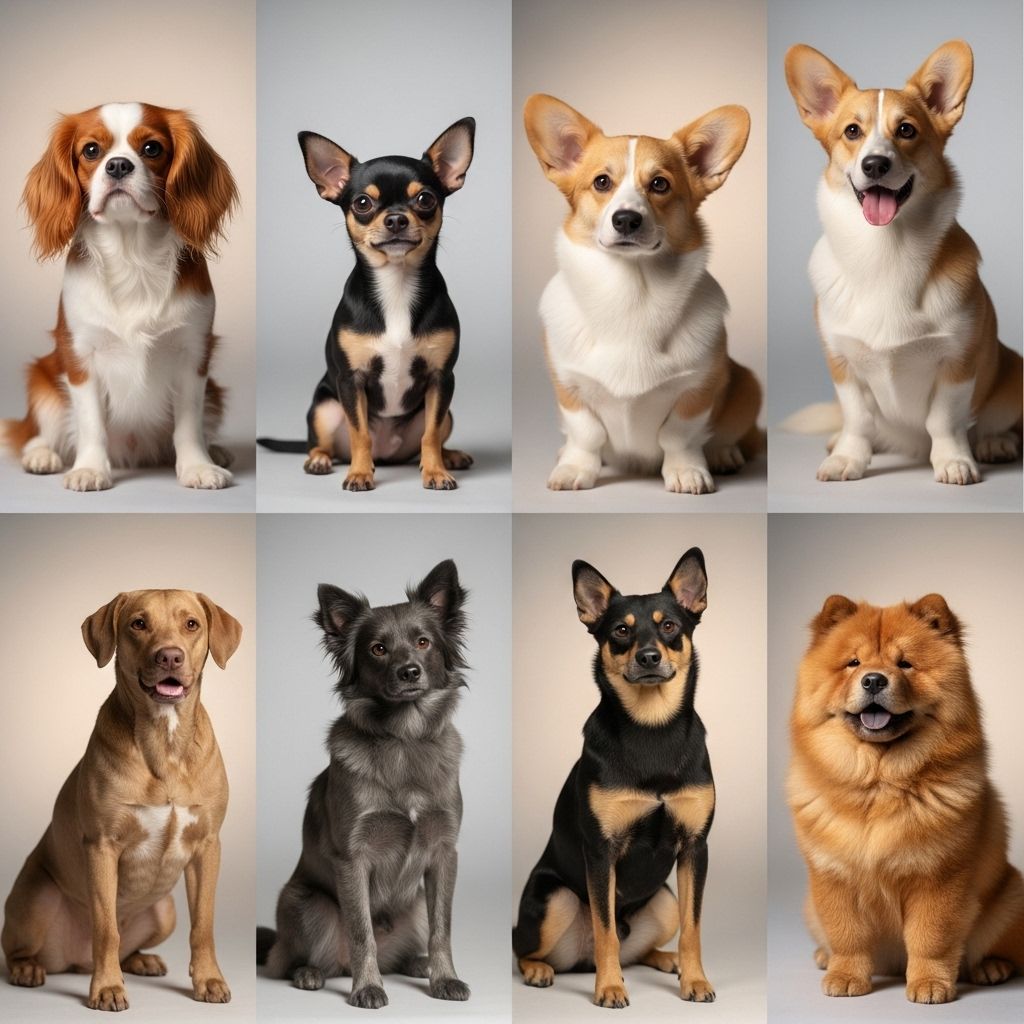
Image: HearthJunction Design Team
AKC ‘C’ Dog Breeds: A Thorough Exploration
The American Kennel Club (AKC) recognizes over 200 purebred dog breeds, each with distinct characteristics, history, and care needs. Among these, the breeds beginning with the letter ‘C’ stand out for their remarkable diversity in size, temperament, and purpose. This guide offers a thorough examination of the main AKC ‘C’ dog breeds, helping prospective owners make informed decisions about their future companions.
Table of Contents
- Introduction to AKC Dog Breeds
- List of ‘C’ Dog Breeds
- Comprehensive Breed Profiles
- Choosing the Right C Breed
- General Care Tips for ‘C’ Breeds
- Frequently Asked Questions (FAQs)
Introduction to AKC Dog Breeds
The American Kennel Club (AKC), established in 1884, has served as the leading authority on purebred dogs in the United States. The club is responsible for recognizing dog breeds, maintaining breed standards, and hosting events such as shows and trials.
Breeds are regularly added to the AKC’s registry as their population grows and they meet the club’s criteria. These breeds are categorized by function, size, and unique characteristics, making it easier for dog enthusiasts to find the right match for their lifestyles.
List of AKC Dog Breeds Starting With ‘C’
The following recognized breeds begin with the letter ‘C’:
- Cairn Terrier
- Canaan Dog
- Canadian Eskimo Dog
- Cane Corso
- Cardigan Welsh Corgi
- Cavalier King Charles Spaniel
- Cesky Terrier
- Chesapeake Bay Retriever
- Chihuahua
- Chinese Crested
- Chinese Shar-Pei
- Chinook
- Chow Chow
- Clumber Spaniel
- Cockapoo (not AKC-registered as a pure breed but widely known)
- Cocker Spaniel (American and English Cocker Spaniel)
- Collie
- Coton de Tulear
- Curly-Coated Retriever
Comprehensive Breed Profiles
Each AKC dog breed starting with ‘C’ fits a unique niche in terms of size, temperament, exercise needs, and grooming requirements. Below, we review key facts about these popular breeds:
Cairn Terrier
- Group: Terrier
- Size: Small
- Personality: Alert, cheerful, independent
- Exercise: Moderate daily exercise
- Grooming: Regular brushing to manage shedding
- Suitability: Good for families and apartments
The Cairn Terrier, famously portrayed as Toto in “The Wizard of Oz,” is a spirited, affectionate, and sturdy small breed. Well-suited for active owners in small living spaces.
Canaan Dog
- Group: Herding
- Size: Medium
- Personality: Vigilant, intelligent, aloof with strangers
- Exercise: Needs regular physical and mental activity
- Grooming: Occasional brushing for double coat
- Suitability: Active homes, those seeking a watchful companion
Cane Corso
- Group: Working
- Size: Large
- Personality: Loyal, protective, assertive
- Exercise: High—requires substantial daily physical activity
- Grooming: Short coat, easy care
- Suitability: Experienced owners, families with space and time
Powerful and intelligent, the Cane Corso needs socialization and training from an early age.
Cavalier King Charles Spaniel
- Group: Toy
- Size: Small
- Personality: Gentle, affectionate, sociable
- Exercise: Daily walks, playtime
- Grooming: Regular brushing for long, silky coat
- Suitability: All families, especially those seeking a gentle companion
Chesapeake Bay Retriever
- Group: Sporting
- Size: Large
- Personality: Courageous, intelligent, loyal
- Exercise: Needs ample exercise—great for field sports and active owners
- Grooming: Dense water-resistant coat, occasional brushing
- Suitability: Ideal for outdoor enthusiasts
Chihuahua
- Group: Toy
- Size: Small (among the smallest AKC breeds)
- Personality: Alert, devoted, lively
- Exercise: Minimal; enjoys short walks and play
- Grooming: Smooth or long-haired varieties, both easy to maintain
- Suitability: Good for small homes or city living
Chinese Crested
- Group: Toy
- Size: Small
- Personality: Affectionate, alert, playful
- Exercise: Short walks, indoor play
- Grooming: Two types: hairless (skin care required) and powderpuff (weekly brushing)
- Suitability: Individuals or families looking for an affectionate lapdog
Chinese Shar-Pei
- Group: Non-Sporting
- Size: Medium
- Personality: Loyal, calm, independent
- Exercise: Moderate
- Grooming: Weekly brushing, care for skin folds
- Suitability: Families aware of skin care needs
Chinook
- Group: Working
- Size: Large
- Personality: Friendly, patient, versatile
- Exercise: Regular activity, loves pulling and outdoor exercise
- Grooming: Moderate
- Suitability: Outdoor lovers, families wanting a gentle large dog
Chow Chow
- Group: Non-Sporting
- Size: Medium to Large
- Personality: Dignified, aloof, loyal
- Exercise: Moderate
- Grooming: Dense double coat, regular brushing
- Suitability: Owners who appreciate independence and grooming
Clumber Spaniel
- Group: Sporting
- Size: Large, heavy-boned
- Personality: Mellow, loyal, gentle
- Exercise: Likes leisurely walks and moderate exercise
- Grooming: Regular brushing, attention to ears and feet
- Suitability: Calm households
Cocker Spaniel (American & English)
- Group: Sporting
- Size: Medium
- Personality: Outgoing, merry, eager to please
- Exercise: Enjoy plenty of play and walks
- Grooming: Regular grooming for long, flowing coat
- Suitability: Families seeking playful, gentle pets
Collie
- Group: Herding
- Size: Large
- Personality: Devoted, graceful, intelligent
- Exercise: Daily exercise needed
- Grooming: Long double coat, brushing often
- Suitability: Active owners, families with space
Coton de Tulear
- Group: Non-Sporting
- Size: Small
- Personality: Cheerful, bright, clownish
- Exercise: Moderate, interactive play
- Grooming: Daily brushing to prevent mats
- Suitability: Excellent for families wanting a hypoallergenic dog
Curly-Coated Retriever
- Group: Sporting
- Size: Large
- Personality: Confident, independent, energetic
- Exercise: High energy — needs frequent activity
- Grooming: Occasional brushing for curly coat
- Suitability: Active homes; great for retrieving and water sports
Choosing the Right ‘C’ Breed for Your Home
There is no one-size-fits-all answer for the best breed. These key considerations can help you choose the right companion:
- Living Space: Small breeds like the Chihuahua or Cavalier King Charles Spaniel thrive in apartments, while the Cane Corso or Collie require room to roam.
- Activity Level: Energetic breeds such as Curly-Coated Retrievers and Chesapeake Bay Retrievers fit active lifestyles, whereas the Clumber Spaniel is more laid-back.
- Experience: Novice owners might prefer easygoing breeds (e.g., Coton de Tulear), but advanced trainers may enjoy the challenge and reward of working breeds like Cane Corso or Chinook.
- Family Dynamics: Consider how breeds interact with children and other pets—gentle breeds often include Cavaliers and Cockers, while independent breeds may require additional consideration.
- Allergies: Look to hypoallergenic breeds such as the Coton de Tulear or Chinese Crested (Powderpuff).
General Care Tips for ‘C’ Breeds
Caring for any AKC-recognized breed requires commitment to their physical, mental, and social needs. To keep ‘C’ breeds healthy and happy:
- Nutrition: Feed a balanced, breed-appropriate diet.
- Exercise: Meet or exceed breed-recommended activity levels. Large, active breeds require extra space and time for exercise.
- Grooming: Regular brushing prevents mats, especially for long-haired or double-coated breeds.
- Health Checks: Schedule annual veterinary exams and stay current on vaccinations.
- Training & Socialization: Start early, using positive reinforcement, to ensure a well-mannered companion.
| Breed | Size | Exercise Need | Grooming Need | Family Suitability |
|---|---|---|---|---|
| Cavalier King Charles Spaniel | Small | Low-Moderate | Moderate | High |
| Cane Corso | Large | High | Low | Moderate |
| Chihuahua | Tiny | Low | Low | Moderate |
| Collie | Large | Moderate | High | High |
Frequently Asked Questions (FAQs)
Q: Are all ‘C’ breeds recognized directly by the AKC?
A: Only purebred breeds that meet the AKC’s strict criteria are officially recognized. Some breeds, like the Cockapoo, are well-known but not AKC-registered because they do not have a consistent pedigree or standard.
Q: Which ‘C’ breed is best for allergy sufferers?
A: The Coton de Tulear and the Chinese Crested (Powderpuff) are among the most hypoallergenic, but individual results may vary. Regular grooming and cleaning help minimize allergens.
Q: Do ‘C’ breeds generally get along with children and other pets?
A: While many breeds like the Cavalier King Charles Spaniel, Collie, and Cocker Spaniel are well suited to families, always supervise interactions with children and introduce new pets gradually, especially with dominant or protective breeds such as Cane Corso or Chow Chow.
Q: What are the most low-maintenance ‘C’ breeds?
A: Breeds with short coats and moderate exercise needs, such as the Chinese Shar-Pei and Cane Corso, are generally low-maintenance compared to heavy shedders like Chow Chow or Collie.
Q: How do I find a reputable breeder for a ‘C’ breed?
A: Start with the AKC’s list of approved breeders, prioritize those who screen for genetic conditions, welcome questions, and provide health clearances for puppies and parents.
Conclusion
The variety in AKC recognized ‘C’ dog breeds ensures that there is a fit for every type of dog lover. Whether you prefer small lapdogs, energetic retrievers, or regal working breeds, understanding each breed’s characteristics, care needs, and temperament will lead to a rewarding relationship between you and your canine companion.
References
Read full bio of medha deb

